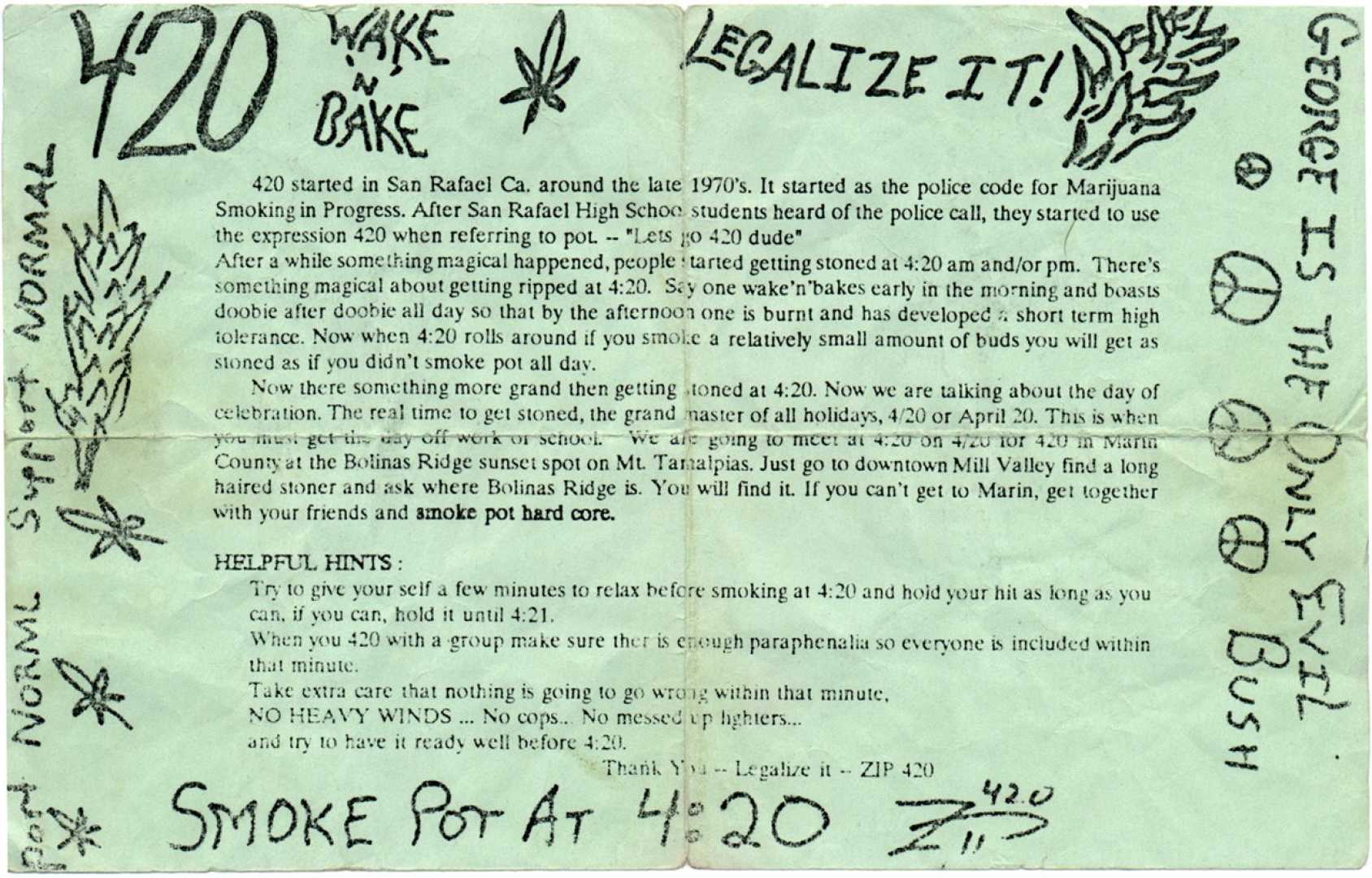News
Origins of 4/20: From High Schoolers to Cultural Phenomenon

AUSTIN, Texas — April 20, 2023, marks a significant day in popular culture, coinciding with Easter Sunday this year. The date is widely recognized as a cannabis celebration, commonly referred to as 4/20. Even those who do not partake in marijuana may find themselves curious about its origins.
The term “4/20” dates back to the early 1970s and is largely attributed to a group of teenage students known as the “Waldos” at San Rafael High School in Northern California. The students—Steve Capper, Dave Reddix, Jeffrey Noel, Larry Schwartz, and Mark Gravich—met at 4:20 p.m. by a statue of chemist Louis Pasteur to smoke cannabis after school.
“We weren’t stupid stoners,” said Capper, now 68, reflecting on their after-school gatherings. Their academic pursuits included sports and studies, making the late afternoon an ideal time for them to meet up. “We got tired of the Friday-night football scene with all of the jocks,” he added.
Reddix later worked with Phil Lesh of the Grateful Dead, who played a key role in popularizing the term. In December 1990, fans of the band, known as “Deadheads,” distributed flyers in Northern California prompting people to smoke at 4:20 p.m. on April 20, ensuring the date’s connection with cannabis continued to grow.
For years, various myths have surrounded the meaning of “420.” Some claimed it was police code for marijuana use, while others suggested it derived from a vague governmental reference, both of which have been debunked.
Despite its recognition, marijuana remains illegal under federal law, with possession consequences varying by state. In Texas, possession of two ounces or less is classified as a Class B misdemeanor. However, recent legislation is moving toward decriminalization. In 2019, Texas Governor Greg Abbott approved a law allowing the production and sale of industrial hemp as long as it contains no more than 0.3% THC.
Meanwhile, the Texas Senate has proposed new legislation aimed at banning all THC products in the state. Another proposal seeks to permit THC-infused beverages sold in liquor stores, pointing towards ongoing changes in the state’s approach to cannabis regulation.
As society navigates these shifting attitudes toward cannabis, the legacy of the Waldos endures, cementing 4/20 as a cultural touchstone that continues to provoke interest among enthusiasts and casual observers alike.












